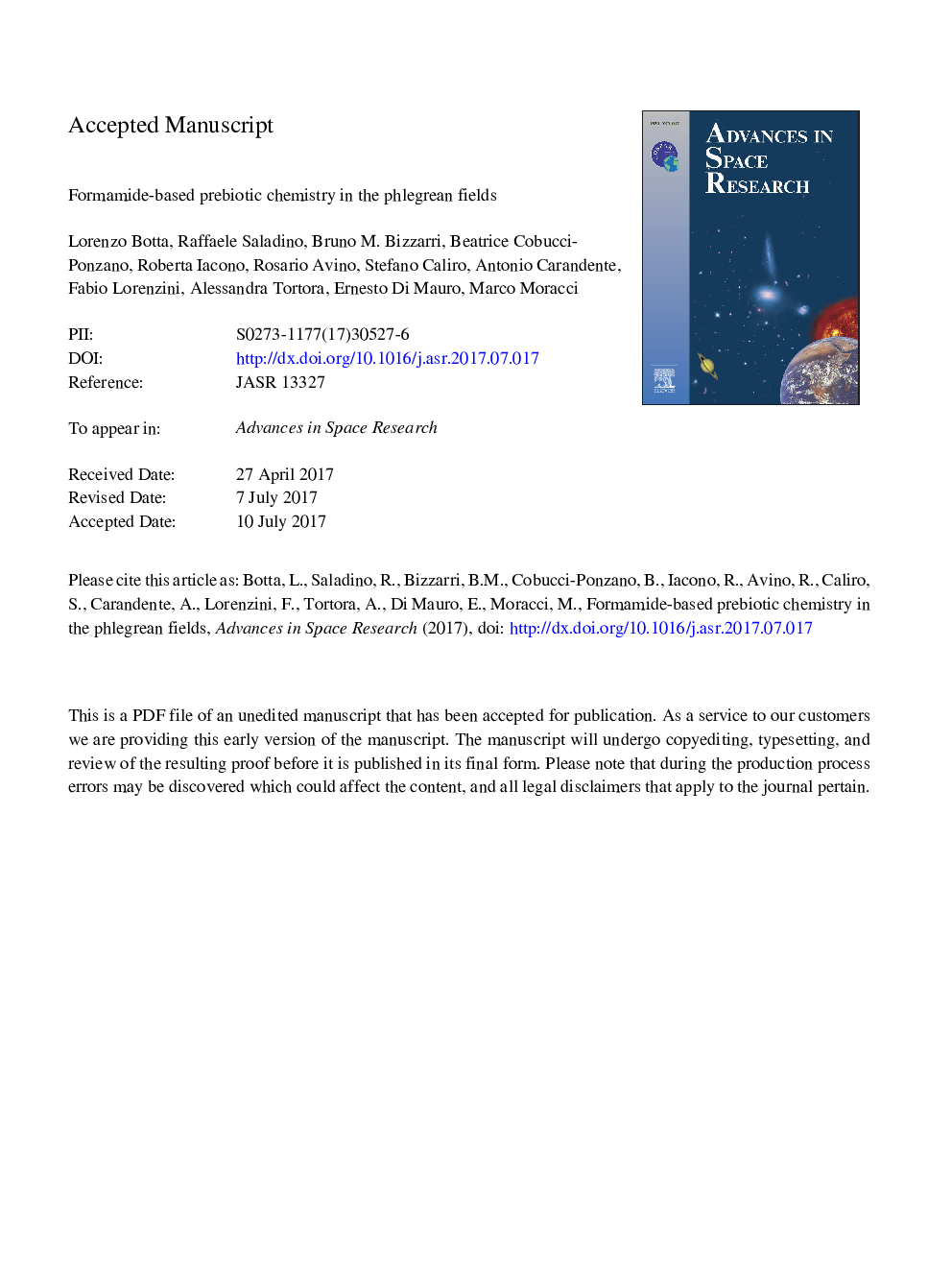| Article ID | Journal | Published Year | Pages | File Type |
|---|---|---|---|---|
| 10156420 | Advances in Space Research | 2018 | 17 Pages |
Abstract
Understanding the formation of biogenic molecules in abiotic conditions is a prerequisite in the origin-of-life studies. Determining the conditions allowing an efficient one-pot synthesis of the largest possible panel of biogenic compounds may shed light on the plausible scenario in which the processes that kick-started life might have occurred. We report a set of experiments describing the syntheses taking place from formamide (NH2CHO) and thermal water in the presence of meteorites, in the hydrothermal physical-chemical environment of the Phlegrean Fields. The results show that meteorites catalyse the synthesis of a large panel of organic compounds of biological relevance, including carboxylic acids, nucleobases, amino acids and sugars. The simplicity of the system (a one-carbon molecule as starting compound, a volcanic hydrothermal environment, meteorites as catalysts) hints to a possible extension of the results to similar environments present in other planetary bodies and space objects.
Keywords
Related Topics
Physical Sciences and Engineering
Earth and Planetary Sciences
Space and Planetary Science
Authors
Lorenzo Botta, Raffaele Saladino, Bruno M. Bizzarri, Beatrice Cobucci-Ponzano, Roberta Iacono, Rosario Avino, Stefano Caliro, Antonio Carandente, Fabio Lorenzini, Alessandra Tortora, Ernesto Di Mauro, Marco Moracci,
